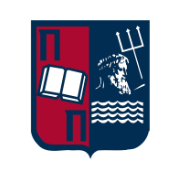Computer Networks I |
|
|---|---|
| Professors | Panagiotis Demestichas Aristi Galani |
| Course category | Core |
| Course ID | DS-320 |
| Credits | 5 |
| Lecture hours | 3 hours |
| Lab hours | 2 hours |
| Digital resources | View on Aristarchus (Open e-Class) |
Learning Outcomes
The course Computer Networks I is expected to introduce students to the concepts of Computer Networks and more specifically in the network protocols’ hierarchy, emphasising on the network layer.
Through this course it is expected that the students will get acquainted with the functionality of computer networks and will be able to comprehend the principles on which data transfer is realised through computer networks.
Upon successful completion of the course, the students will be in position to:
- know and describe in detail how the network protocols work, as well as their architecture,
- know the functionalities of the network layer,
- select and apply the appropriate routing algorithms,
- choose the most appropriate route each time, depending on the network needs,
- describe, analyze and further develop network-level algorithms in languages such as C/C++ or Java.
Course Contents
- Section 1: Introduction to networks, need for networks, categories of networks. Network elements and communication links.
- Section 2: Protocols and protocol hierarchies/stacks, role of protocols.
- Section 3: Functionality of network layer.
- Section 4: Switching, circuit switching; packet switching, datagrams, virtual circuits.
- Section 5: Routing, link state routing, Dijkstra, Bellman-Ford, spanning tree, multicast, broadcast.
- Section 6: Congestion control.
- Section 7: Students are asked to conduct small projects, related to the implementation of network level functionality and algorithms, through the use of C/C++ and/or Java.
- In addition, articles, web addresses for useful information, as well as exercises for practicing students are posted in the platform Evdoxos.
Recommended Readings
- Haykin S. (1994): Communication systems, Wiley.
- Tanenbaum A. (2003): Computer Networks, Prentice Hall.
Associated scientific Journals
- ΙΕΕΕ Computer Networks
- IEEE Communications Magazine
- IEEE Access
- IEEE Wireless Communications
- International Journal of Network Management
- Transactions on Emerging Telecommunications Technologies
- EURASIP Journal on Wireless Communications and Networking

